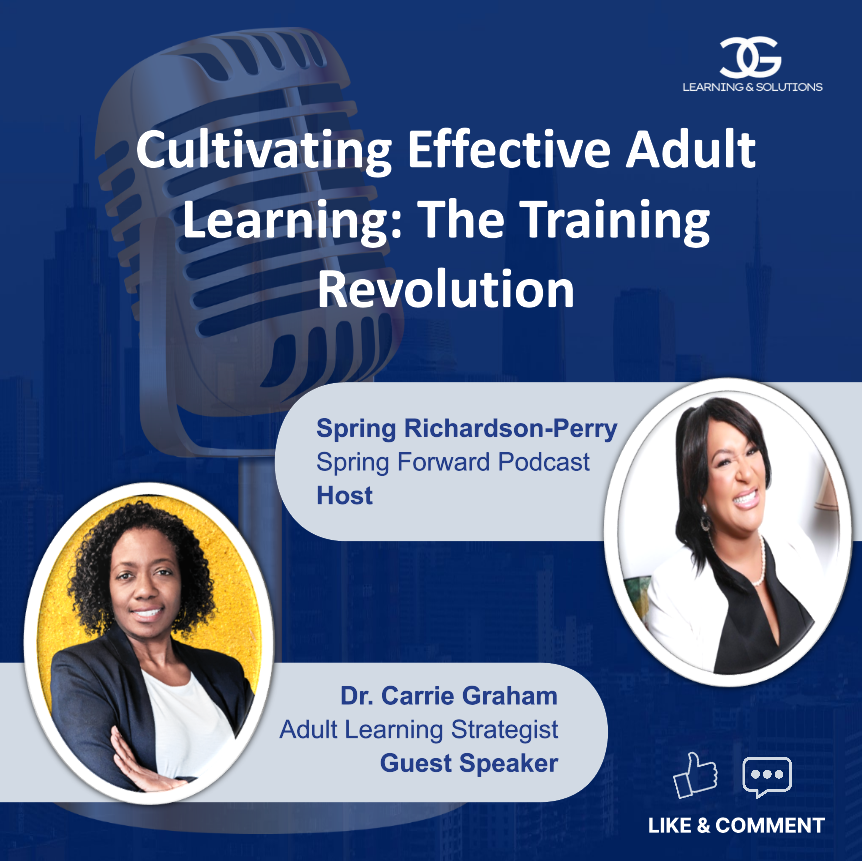
In this episode of the Spring Forward Podcast, host Spring Richardson-Perry interviews adult learning strategist Dr. Carrie Graham about transforming workplace training programs. Dr. Graham shares her journey from frustrated healthcare provider to training consultant, explaining how poor training experiences motivated her to help businesses develop better professional development plans. The conversation covers the fundamental differences between how children and adults learn, emphasizing that adults bring life experiences, critical thinking skills, and prior knowledge to every learning situation. Dr. Graham discusses her customized approach to training and development, focusing on truly understanding both organizational needs and employee learning preferences rather than using one-size-fits-all solutions. They explore current trends affecting workplace learning, including AI technology and the shift toward remote work environments. The discussion highlights three essential strategies for effective adult learning: engagement (not entertainment), comprehension and retention, and practical application. Dr. Graham emphasizes the significant costs of ineffective training programs, including wasted resources, frustrated employees, and negative impacts on personal lives and communities. The episode concludes with information about Dr. Graham's training assessment tool and her mission to eliminate negative learning experiences while empowering employees to develop essential leadership qualities.
Listen Here > https://www.youtube.com/watch?v=4REXoRDQQII
Dr. Graham emphasizes that effective training and development must recognize that adults bring valuable life experiences and critical thinking skills to every learning situation, requiring customized approaches rather than one-size-fits-all solutions. She advocates for training programs that not only meet organizational outcomes but also empower employees to feel engaged, supported, and capable of applying their new leadership skills, ultimately creating positive impacts that extend beyond the workplace into families and communities.
Listen Here > https://www.youtube.com/watch?v=4REXoRDQQII
Read > Psychology Behind Blocks in Training Development
Subscribe > C.A.L.M. Email for weekly industry insights
Get practical tools, strategies, and resources to design and deliver impactful training programs — right in your inbox.